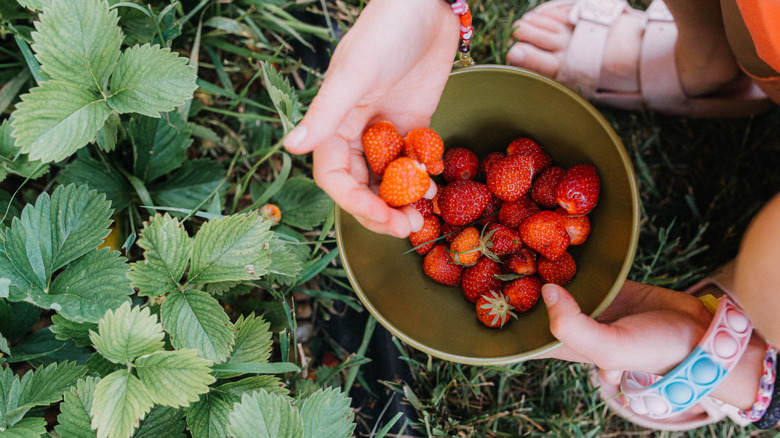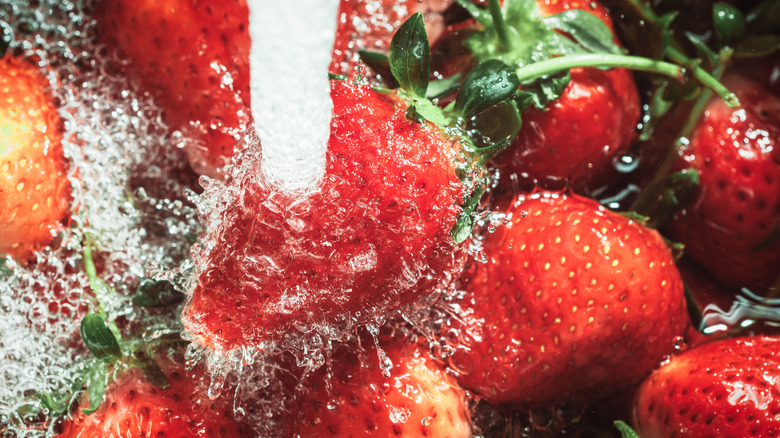The Simple Trick For Storing Strawberries That Keeps Them Fresh For Days
When you want to properly store strawberries, it's not just about keeping them in an airtight, refrigerated container. You'll also need to ensure their surfaces are free of mold spores and bacteria that slowly invade your sweet fruit and turn them into a mushy mess. That's why, if you want to enjoy them for as long as possible, they'll need a quick soak in vinegar.
The same way vinegar keeps mold away from cheese, it's the best pantry staple for preserving fruit. Mold spores multiply at an incredibly fast rate in the right environments, and even if you don't see them, you can guarantee they're there. While rinsing with water may help remove dirt and even some mold spores, it doesn't create the uninhabitable environment that kills them outright. Vinegar, however, has the right pH balance to kill off microscopic organisms, and it's safer to work with and consume than harsh cleaning agents.
You won't need anything fancy, so feel free to use that giant jug of white or apple cider vinegar you clean your kitchen with, and save your nice French balsamic for something tasty. Mold spores float through the air and will inevitably make their way onto your fruit, but killing off the worst of it right when you get home gives you a much larger window of deliciousness to enjoy them. Plus, the process couldn't be easier, and it works just as well for other fruit, like raspberries.
How to clean your strawberries with vinegar
There are two basic ways to clean fruit with vinegar: soaking and spraying. While spray bottles work well for larger fruits like apples and oranges, mold spores can thrive in tiny crevices, so you'll want to soak your strawberries for maximum effect.
All you need to do is combine one part vinegar to three parts water, drop in your strawberries, and let them soak for five to 10 minutes. Since vinegar is so acidic, diluting your mixture prevents it from damaging your strawberries' skin, but soaking them ensures the delicate mold spores still have enough time to die off. Once you're done, be sure to give them a thorough rinse. While a trace amount of vinegar residue won't do much harm, it can taste unpleasant.
This method also has the added bonus of tackling bacteria. If you want to remove pesticide residue as well, give your strawberries a quick alkaline bath in one teaspoon of baking soda mixed with two cups of water to really guarantee their quality. While storing strawberries in their original container lined with paper towels helps them age well, nothing works quite like vinegar to keep out tiny intruders and maintain their freshness.


